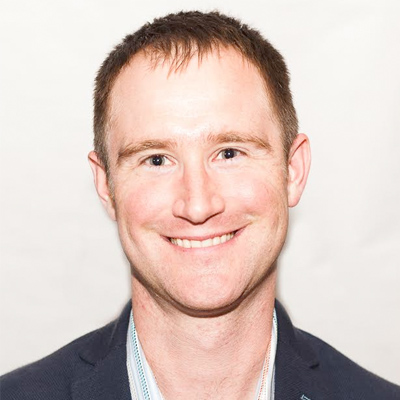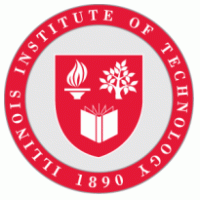Technologies for the future of energy and computing
The industrial revolution was largely driven by advances in chemistry while the green revolution requires scientists to rethink and retool how materials are produced with everything from fuels to plastics, drugs to dyes, and computer chips to solar cells. Dr. Adam Hock, Assistant Professor of Chemistry at the Illinois Institute of Technology and Assistant Scientists at Argonne National Laboratory, is a leader in the next generation of materials revolution. He and his team are developing new ways to make materials for more efficient energy and for improved computing devices. With the unique skill of chemical synthesis, he and his team make novel catalysts that are advancing environmental solutions as well as helping to develop new electronic materials and scalable routes to them. Their impressive ability to assemble novel molecules with near atom-like precision in addition to their strong focus on societal impact, has resulted and is likely to continue to lead, to the reduction of byproducts and energy demand in the chemicals industry as well as new synthetic methods for other electronic materials used in computing, memory, and other components of future computer systems.
Dr. Hock’s diverse training gives him the ability to bridge gaps and develop new areas of research at the interface between chemistry, materials science, engineering, and other branches of science. In this way, he and his team have the vocabulary and the knowledge necessary to work closely with people in a variety of fields while providing sustainable solutions to next-generation energy and computing applications. In addition, Dr. Hock and his team have access to world-leading facilities at Argonne National Laboratory, where they can make measurements that are extremely precise, to understand how reaction chemistry is proceeding. In this way, although Dr. Hock’s group is a basic science group, close collaborations with industrial partners, sophisticated lab facilities, and a diverse research team enable them to seek out opportunities for basic science “to make a real leap forward in technology with the appropriate development” to bring research to the market.
Current research includes:
- Industry Carbon Emissions: Carbon emissions from industry were not a concern in the past but recently have become cause for increased concern. Dr. Hock is working on ways to reduce byproducts and energy demand in the chemical industry by retooling chemicals and fuels infrastructure to be more efficient, flexible, and robust. His research is helping to promote the industry’s movement away from ‘dirty’ technology while rethinking the use or recycling for other technologies.
- Solar Energy: Although photovoltaic research has exploded in recent years, relatively few materials have actually been studied in detail. Part of the challenge has been the difficulty in synthesizing these new materials. Dr. Hock is directly developing new sources of energy from sunlight using his expertise in synthesis methods for photovoltaics.
- Materials for Computing: Dr. Hock is working on new synthetic methods for electronic materials used in computing, memory, and other components of future computer systems. In this way, his research may help pave the way for next-generation technologies.
Bio
Dr. Hock discovered science because he loved watching reactions happen; the color changes, precipitates, and bubbling. As a child, he loved to take things apart and try to put them back together. He became a chemist because he realized that was only the beginning and the knowledge he gained was central to working on problems he is passionate about, and chemistry is a wonderful way to take things apart and put them back together on the molecular level.
As a high school student, Dr. Hock had an incredible teacher who taught advanced material in addition to encouraging his students, including Dr. Hock, to go to elementary schools and present fun chemistry material and shows. By participating in his high school chemistry outreach, Dr. Hock became passionate about the exciting reactions he could make with the simplest of materials. Therefore, as Dr. Hock began his undergraduate career, it was an easy decision as he selected chemistry as his major. After only a few weeks of classes, he approached his chemistry professor hoping to get involved in research. Looking back, Dr. Hock chuckles with the awareness that he was “probably too naive to be intimidated” about research as such a young student. At any rate, his professor was impressed by his enthusiasm and directed him towards a lab where he worked all four years of his undergraduate career.
As Dr. Hock continued to earn his Ph.D. and then went on to complete his postdoc; what remains the most memorable are the incredible mentors who supported and inspired him. In fact, his Ph.D. advisor won the Nobel Prize while he was working in his lab! With humbleness, Dr. Hock expresses his gratitude for the mentors who lead him to where he is now remarking that he has been “truly blessed to have remarkable mentors.” Dr. Hock has applied the same encouragement he received from his mentors to his own students. With a true open-door policy, he explains to students that the reason he works so hard is to move them closer to their future goals.
When asked why he continues to enjoy chemistry research, Dr. Hock says simply, “I enjoy the pretty colors.” However, his research is more sophisticated than simply observing colors, much of his time is spent making materials using the unique skill of chemical synthesis to make catalysts for energy and computing materials.
Aside from research, Dr. Hock can be found playing soccer, one of his lifetime hobbies. For him soccer has been an incredible way to meet friends, travel around the world -- including trips to Italy as a high school student -- and even where he met his wife! In short, Dr. Hock says, “the sport has been incredibly good to me.” Additionally, he enjoys brewing beer and fiddling with watches.
In the News
Illinois Tech Media Room
Publications
Awards
IIT Sigma Xi Junior Faculty Research Award, 2015
‘Featured Article’ chosen by the Journal of Catalysis staff (February issue), 2015
“Selective Propane Dehydrogenation with Single Site CoII on SiO2 by a Non-redox Mechanism” Journal of Catalysis. 2015, 322, 24-37.
Excellence in Research by a Junior Faculty Member Award, 2014
College of Science, Illinois Institute of Technology
Camille and Henry Dreyfus Environmental Chemistry Fellow, 2009 - 2010
Patents
Weimer, M. S. and Hock A. S. patent application in progress (2015)
Weimer, M. S., Klug, J. A., Hock, A. S., Proslier, T. patent application in progress (2015)
Application No. 14/335,745: "Oxygen-free ald of indium sulfide"
McCarthy, R., Weimer, M. S., Hock, A.S., and Martinson, A. B. F. 2014.
Application No. 13/830320: "Selective Alkane Activation with Single-Site Atoms on Amorphous Supports"
Schweitzer, N. M., Hu, B., Miller, J. T., and Hock, A. S. 2013.
Application No. 61/320069: "Cyclic Amides and Vapor Deposition Using Them"
Hock, A. S. and Gordon, R. G.
U.S. Patent No. 20080119678: "Olefin metathesis catalysts and related methods"
Hock, A. S. and Schrock, R. R.


